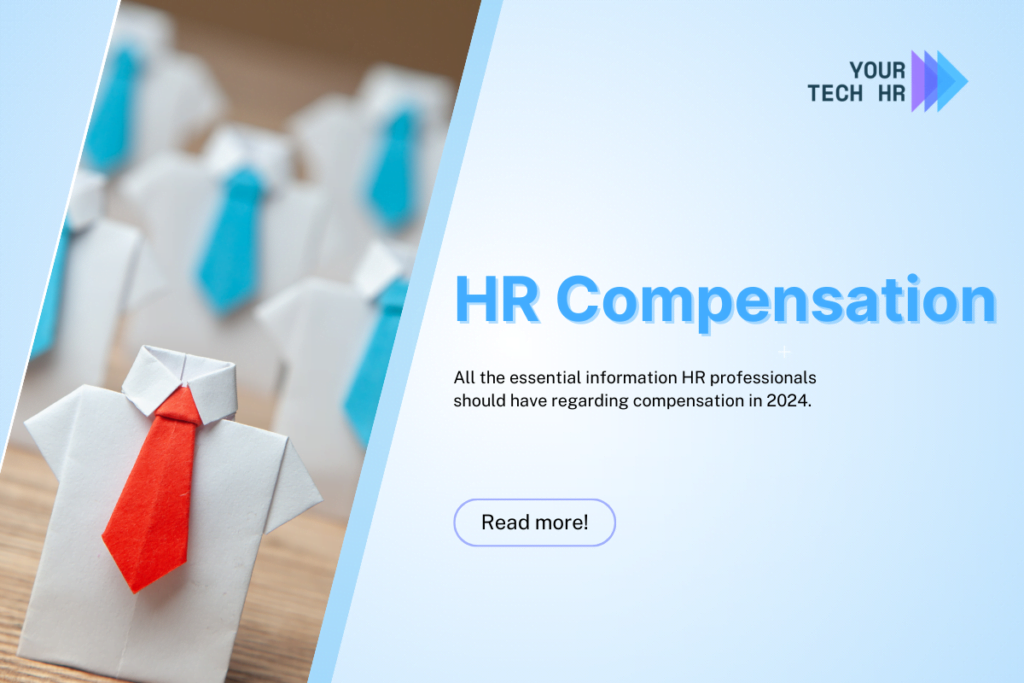In today’s competitive talent market, compensation in Human Resource (HR) is no longer just about paying employees. It’s about building a comprehensive and strategic reward system that attracts, retains, and motivates top talent. This is a world where HR compensation strategies fall short, leading to decreased employee engagement, motivation, and ultimately, organizational success.
So, what is compensation in the context of HR, and what are the different ways organizations can approach it?
Decoding Compensation in HR: Definition, History, and Significance
Compensation meaning in HR refers to the total financial compensation and pay compensation an employee receives in exchange for their work. This encompasses a broad spectrum, including:
- Base salary: A fixed, regular payment received by an employee, typically monthly.
- Wages: Hourly pay received by an employee, often seen in jobs with varying work hours.
- Bonuses: Performance-based or incentive-based additional payments.
- Benefits: Non-monetary rewards offered by an employer, such as health insurance, paid time off, and retirement plans.
The history of HR compensation dates to the industrial revolution, where the primary focus was on providing basic wages to meet employee subsistence needs. Over time, the concept of compensation in Human Resource Management (HRM) evolved to encompass not just basic needs but also employee well-being, motivation, and retention.
The significance of HR compensation lies in its direct impact on an organization’s success. A well-designed compensation system can:
- Increase employee engagement: When employees feel valued and compensated, they tend to be more engaged and productive.
- Improve retention: Competitive compensation helps retain valuable talent and reduces costly employee turnover.
- Boost morale and motivation: Fair and transparent compensation practices contribute to a positive work environment and employee motivation.
Navigating the Evolving Landscape: Latest Trends in HR Compensation
The definition of compensation in HR is constantly evolving, adapting to changing economic realities, employee expectations, and government regulations. Here are some of the latest trends shaping the compensation and benefits landscape:
- Focus on total rewards: Organizations are moving beyond base pay to offer attractive compensation packages that include benefits, perks, and wellness programs, catering to employees’ diverse needs and preferences.
- Remote work flexibility: With the rise of remote and hybrid work models, compensation systems are adapting to address geographical pay disparities and ensure fair pay for employees regardless of location.
- Skills-based pay: Traditional job-based pay structures are giving way to skills-based pay, where employees are compensated based on their specific skills and experience rather than simply their job titles. (Source: [World Economic Forum The Future of Jobs Report 2020])
- Emphasis on well-being: Recognizing the impact of employee well-being on performance and engagement, organizations are offering benefits and programs that promote mental and physical health.
- Data-driven decision-making: HR departments are increasingly leveraging data analytics to assess the effectiveness of their compensation strategies and make data-driven decisions regarding pay adjustments and benefits offerings.
Beyond the Basics: Unconventional Compensation Strategies
Compensation issues in HR go beyond simply offering competitive salaries and benefits. Forward-thinking organizations are exploring unconventional compensation sources to attract and retain talent:
- Learning and development opportunities:
Providing access to training programs, conferences, and professional development opportunities can be a valuable form of wage compensation. - Employee stock options:
Offering ownership stake in the company through stock options can incentivize employees and foster a sense of ownership. - Flexible work arrangements:
Allowing employees to customize their work schedules or locations can be a valuable non-monetary form of financial compensation. - Social impact programs:
Supporting causes employees are passionate about can enhance their sense of purpose and satisfaction, contributing to positive employer branding.
Investing in People: The Ethical and Legal Landscape of HR Compensation
Beyond the practical considerations of attracting and retaining talent, HR compensation also carries ethical and legal implications. Ethical considerations in HR compensation revolve around ensuring fairness, equity, and transparency. This means:
- Pay equity: Avoiding pay disparities based on factors like gender, race, or ethnicity.
- Internal equity: Maintaining fair relative pay within the organization based on experience, skills, and contributions.
- Transparency: Communicating compensation policies and pay structures clearly to employees.
Legal considerations in HR compensation involve complying with various regulations like:
- Minimum wage laws: Ensuring employees are paid at least the minimum wage mandated by federal and state laws.
- Equal Pay Act: Protecting employees from pay discrimination based on gender.
- Fair Labor Standards Act (FLSA): Dictating overtime pay requirements and other workplace standards.
By staying informed about legal requirements and prioritizing ethical practices, HR professionals can build a compensation system that is not only effective but also upholds the principles of fairness and compliance.
The Future of HR Compensation: A Collaborative Approach
As technology and work styles continue to evolve, the future of HR compensation involves a collaborative approach, with greater emphasis on:
- Employee choice and customization: Empowering employees to personalize their compensation packages based on their unique needs and preferences.
- Data-driven insights: Utilizing data analytics to personalize compensation offerings and track the effectiveness of compensation strategies.
- Focus on well-being: Integrating mental and physical well-being initiatives into compensation packages to promote a comprehensive approach to employee satisfaction.
A successful HR compensation strategy fosters a win-win situation. By investing in their people through fair and comprehensive compensation practices, organizations can attract and retain top talent, unleash human potential, and ensure long-term growth and success.
Expert Tips for Crafting a Winning HR Compensation Strategy
Developing an effective compensation system requires careful planning and execution. Here are some expert tips for HR professionals:
- Conduct regular market research: Stay updated on current salary trends and competitor offerings to ensure your compensation packages remain competitive.
- Develop a clear compensation philosophy: Define your organization’s values and principles regarding employee rewards, ensuring transparency and consistency.
- Communicate effectively: Clearly communicate your compensation and benefits offerings.
- Implement a fair and transparent pay structure: Establish clear criteria for determining base pay, bonuses, and promotions, ensuring fairness and preventing pay discrimination.
- Embrace flexibility: Consider offering flexible compensation options, allowing employees to customize their benefits packages based on their individual needs.
- Seek continuous improvement: Regularly review and evaluate your compensation strategies, adapting them to changing market dynamics and employee needs.
Conclusion: Building a Successful Future Through Strategic Compensation
In today’s dynamic work environment, HR compensation is no longer a static process, but a strategic investment in the future of your organization. By understanding the evolving trends, embracing innovative approaches, and fostering a culture of fair and transparent compensation practices, HR professionals can attract and retain top talent, drive employee engagement, and contribute to organizational success. Remember, comprehensive compensation goes beyond just the paycheque; it is about creating an environment where employees feel valued, motivated, and empowered to reach their full potential.


